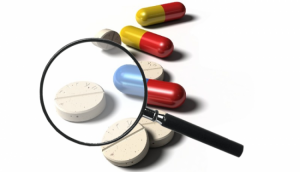Attention and urgency in the implementation of Compliance programs. These were the main points addressed by participants at a seminar held in November by the Pharmaceutical Products Industry Union (Sindusfarma) in partnership with ETCO, on Law 12.846.
In his opening lecture, the former CEO of international laboratories, Jorge Raimundo, recalled that two years ago the code of ethics for pharmaceutical companies was completed and that signing the document is a prerequisite for any company in the sector. “Companies that want to have a history of more than 100 years cannot go wrong on a daily basis. In the pharmaceutical industry, it is essential to respect ethical principles and companies have to follow codes of conduct that protect investors from illegal acts that could compromise their market value, ”he added.
ETCO's Executive President, Evandro Guimarães, highlighted the institute's objective of raising awareness and mobilizing society so that the new measure can reduce corruption among public officials. The Executive President of Sindusfarma, Nelson Mussolini, cited the allegations of corruption raised by Operation Lava Jato to illustrate the importance of a change in the attitude of companies when it comes to corruption. “When you see everything that happens in Brazil today, you understand the importance of beginning to live ethics within the country”.
During the seminar, CVS Caremark's Compliance Officer, Alexandre Serpa, pointed out that the high figures involving pharmaceutical companies and the already known modus operandi the sector puts it in the sights of the Anti-Corruption Law. He pointed out that these factors further intensify the need for companies in the industry to develop serious compliance programs that, according to the law, can serve as mitigants in cases of conviction. In addition, he added that the risks for the segment have changed in recent years, requiring a review of existing prevention actions. “Ten years ago, corruption was paying for travel and gifts for doctors. Today, it involves high-cost drugs and relationships with medical associations and the government ”.
The person in charge of Machado, Meyer, Sendacz and Opice Advogados in the Compliance area, Leonardo Machado, emphasized the importance that the segment should give to the theme. “The pharmaceutical industry has peculiar characteristics in contact with the public sector and must be aware of the impacts inherent to the new legal text. Experiences in the application of similar anti-corruption laws in other countries, make it clear that the sector is one of the ones that most draws the attention of the authorities, ”he said.
Also present at the event, the Security and Control Analyst at the Federal Comptroller General (CGU), Flávio Rezende Dematté, said that Law 12.846 came to correct a gap Brazil in relation to the liability of the Legal Entity for acts of corruption. The measure also stands out, according to him, for its focus on the economic bias of corruption by imposing high fines and the publication of the condemnation of businesses involved in illegal acts.




